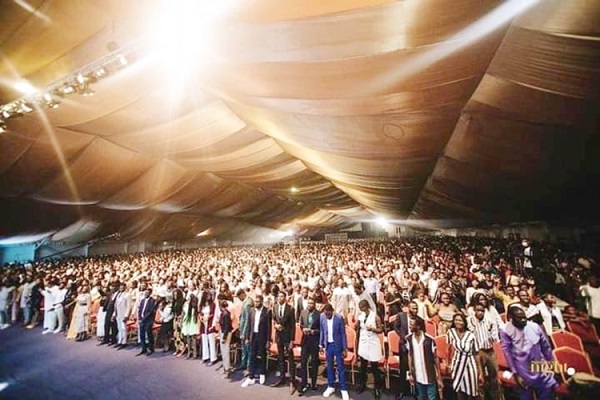
3 Christ Embassy members charged for flouting COVID-19 law acquitted and discharged
The Accra Circuit Court has acquitted and discharged three members of the Christ Embassy Church who were standing trial for breaking COVID-19 restrictions during a youth concert in 2021.
Flashback: Police investigate Christ Embassy for flouting COVID-19 protocols
Christ Embassy's 'Pneumatica Night': 4 charged for breaching COVID-19 protocol
Alex Asomani, Wilson Delali Agyemang and Kumi Nutifafa were set free after the court held that the Imposition of Restrictions Act, 2020 (Act 1012) , the law which gave legal basis to the offences levelled against them had been declared as unconstitutional by the Supreme Court.
The decision by the court followed an application by counsel of the accused persons, Nanabanyin Ackon, who argued that the decision of the Supreme Court had nullified Act 1012 and therefore by law his clients were deemed not to have committed any offence in the first place.
“A nullified enactment is legally void and has no substance. It had no recognition or life under the law and that nothing can be founded on it, same shall collapse and no legal effect shall be given to it,” Mr Ackon submitted.
Charges
On April 30, 2021, the Youth wing of Christ Embassy Youth organised a concert at the Fantasy Dome.
Asomani, Agyemang and Nutifafa, who were youth leaders of the church were arrested by the police and charged with conspiracy not to comply with restrictions imposed on large religious gathering, failure to comply with restrictions imposed on religious bodies, namely, duration of service to two hours maximum.
The trio could have faced up to 10 years imprisonment based on the sentencing regime in Act 1012.
Per Section 6 of Act 1012, “a person who fails to comply with the restrictions imposed under the Executive Instrument issued under subsection 1 of Section 2 commits an offence and is liable on summary conviction to a fine of not less than 1,000 penalty unit (Gh¢12,000) and not more than 5,000 penalty units (Gh¢ 60,000) or to a term of imprisonment not less than four years and not more than 10 years or to both.”
Unconstitutional law
On May 31, this year, a seven-member panel of the Supreme Court unanimously declared Act 1012 as unconstitutional.
The court held that Act 1012 violated the constitution because it allowed the President to declare a state of emergency and impose restrictions without the laid down procedure as stipulated by Article 31 of the 1992 Constitution.
“We hold that Act 1012 is inconsistent with Articles 21 and 31 in so far as it deals with matters that are ,more qualified for a declaration of a state of emergency , without recourse to Article 31. Article 31 is the gateway for dealing with public emergencies with such magnitude such as the Covid-19 pandemic.
To the extent that Act 1012 contravenes Article 21, 31, 32, 58 (2) and 93(2) of the 1992 Constitution, we strike down Act 1012 as unconstitutional and therefore null and void,” the court held.
The seven-member panel was presided over by Justice Jones Dotse, with Justices Nene Amegatcher, Prof. Nii Ashie-Kotey, Avril Lovelace –Johnson, Issifu Omoro Tanko Amadu, Prof. Joy Henrietta Mensa-Bonsu and Emmanuel Yonny Kulendi.
Writer’s email: emma.hawkson@graphic.com.gh
